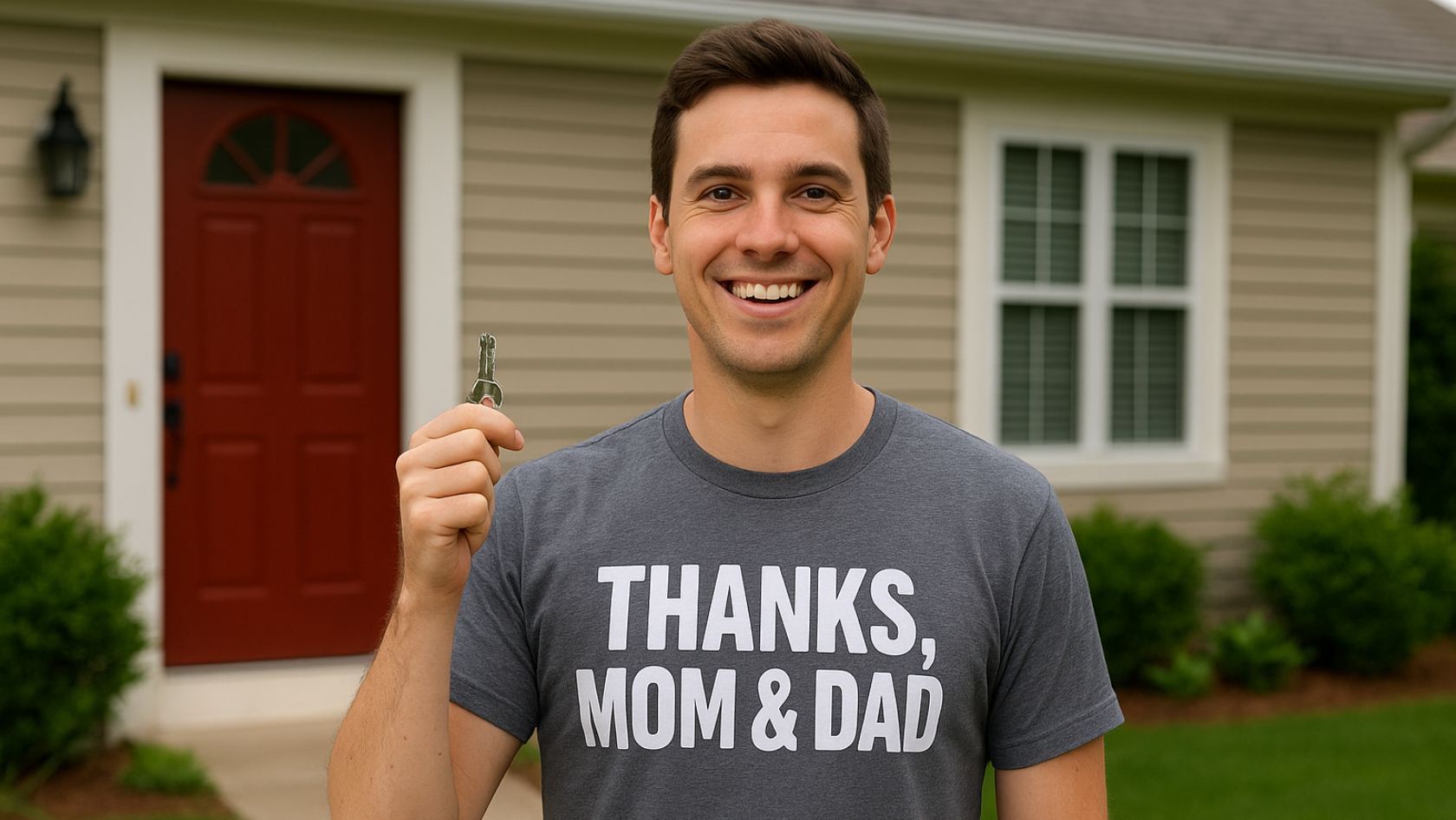So your kid wants to buy a home, and you're thinking about stepping in to help. Good news: you’re not alone. Bad news: doing it wrong can trigger taxes, tension, or both.
Today’s first-time buyers are facing a combo of sky-high prices and interest rates that just won’t quit. The typical down payment climbed to $63,000 in 2024, and mortgage payments are at near-record highs. According to a Redfin survey, almost a quarter of Gen Z and Millennial buyers recently used family money to make it happen, either as a cash gift or inheritance.
And while the term “nepo-homebuyer” might get thrown around, let’s be real: giving your kids a leg up in this market isn’t favoritism, it’s financial strategy. The trick is doing it right.
Even the most generous moves can backfire if you don’t plan ahead. I've seen it all: families caught off guard by taxes, relationships strained by miscommunication, and properties stuck in probate for months.
Let’s make sure that’s not you.
Here are the 3 best ways to give your kids real estate, plus the 3 biggest mistakes to avoid (no matter how tempting they might seem).
3 Smart Ways to Help Your Kid Get a Home
1. Gift Cash (Within the IRS Sweet Spot)
Let’s start with the most straightforward path: give your kid cash. It’s clean, it’s flexible, and it avoids a lot of headaches, as long as you follow the rules.
In 2025, you can give up to $19,000 per person (or $38,000 as a couple) per year without having to report anything to the IRS. If you give more, it just chips away at your lifetime exemption, which is $13.99 million per person right now. No taxes due unless you cross that line.
With that money, your kid can fund a down payment. If they’re taking out a mortgage, you’ll just need to write a brief gift letter confirming that the money doesn’t need to be repaid.

2. Act Like the Bank (But Smarter)
If you want your kid to have some skin in the game, and maybe even learn a thing or two about managing debt, consider setting up a family loan.
Here’s how it works: You become the lender, they make payments, and everyone wins. You can even forgive part of the loan each year using that $19K gift limit, turning it into a tax-smart hybrid of loan and gift.
But—and this is important—put it in writing. The IRS expects formal terms, a repayment schedule, and interest rates that match federal guidelines. Skip the paperwork, and you risk the loan being treated as a taxable gift.
Have an estate planner or CPA help you draft the promissory note. It's a small investment to avoid a big mistake.
3. Set Up a Trust (Yes, Even If You’re Not a Billionaire)
Trusts aren’t just for the ultra-wealthy or characters in HBO dramas. If you’re planning to gift a full property or you want to protect the asset from divorce, creditors, or future family feuds, this is an option worth looking into.
You’ve got two types of trusts:
Revocable trust: Easy to amend, and ideal for passing property after your death without probate.
Irrevocable trust: Less flexible, but better for asset protection, lowering estate taxes, and letting your kid use the property while you’re still alive.
Trusts also make it easier to handle multiple heirs. Want your kids to co-own the family vacation home or split rental income fairly? A trust can spell all that out clearly, legally, and with less room for drama later.
3 Common Mistakes That Can Blow Up the Plan
1. Adding Your Kid to the Deed
It sounds like a shortcut. Just put their name on the title and call it a day, right?
Wrong.
Adding your kid to the deed can create a huge tax burden down the road. Why? It strips you of control. If your child wants to sell, rent, or refinance the home, you might not have a say.
In addition, when they sell, they’ll be taxed based on your original purchase price, not the home’s current value. That could mean they’ll pay more in capital gains taxes.
And let’s not even get into what happens if they get divorced or sued.
2. Leaving the Property in a Will (And Only a Will)
Yes, a will can pass on your property. But it also sends your estate straight into probate, which is a public, drawn-out process that can take months and drain your estate with legal fees.
Even worse, a will doesn’t help with taxes. There’s no built-in protection, no ability to set conditions, and no privacy.
A trust does everything a will does and then some. It’s worth the extra effort, especially when real estate is involved.
3. Selling the House to Your Kid for $1
We’ve all heard this one: “Just sell it to your kid for a buck and call it a day.”
Sounds clever. But in the eyes of the IRS? That’s a gift. And not a well-structured one.
You’re still on the hook for gift tax reporting, and your child inherits your original cost basis, meaning huge tax bills if they ever sell. It’s the worst of both worlds: no protection, no tax savings, and a confusing paper trail.
Don’t do it. There are cleaner, smarter, safer ways.
Final Thoughts
Helping your kid buy real estate isn’t about spoiling them; it’s about setting them up for success in a market that’s harder than ever to break into. If you have the ability to help, that help matters.
But doing it the right way turns a kind gesture into a powerful financial legacy.
Have questions or want to talk through your options with a real estate pro? I’m happy to connect you with trusted estate attorneys, CPAs, or local lenders who specialize in this kind of planning.
Because the last thing you want is to give your kid a house, and accidentally give them a headache too.
—
Joseph Ranola | Five-Star Staten Island & South Brooklyn Realtor® (30 + Google reviews)
Associate Broker · Matias Real Estate | Founder · Bridge & Boro Team
Serving 103xx and 11209 / 11214 / 11228 | $25 M + closed volume
📞 917-716-1496 | RanolaRealEstate.com
Request your free, data-driven home-value report →







